After about 1.5 years of shifting from DORSCON Orange, CB, P1, P2, P3, tightened SMMs, P2(HA) and now, P3(HA), many condo residents and their MCST committee are used to being put on high alert. Some MCSTs do just enough (within BCA guidelines) or go the extra mile to protect their residents and guests, but some might take things a little too far and in the end, get some residents riled up.
The Building and Construction Authority (BCA), which oversees the Management Corporation Strata Titles (MCSTs) for condominiums, usually issue safe distancing measure advisories to the MCSTs, such as the use of swimming pools, gymnasiums, barbecue pits, function rooms, and so on during these different phases.
In turn, the MCSTs (and their appointed managing agents, or MAs) will distribute the advisories to their residents, usually through the condo’s in-house app and notices at lift lobbies and bulletin boards. We’ve covered MCSTs and MAs quite extensively in the past.
Anyway, despite receiving the same advisories from BCA, not all measures taken by MCSTs and their MAs in different condos are similar.
Here are five examples, which for better or worse, may keep COVID-19 out of the condo’s compound for sure, but leave a frown or a sour taste in residents’ mouths:
1. MRT-like gantry with facial checks for resident and guest entry
City Square Residences, located at Kitchener Link and opposite City Square Mall, once made news in 2014. While that’s a long time ago, the development has taken visitation strictness to the next level. One reason for this strictness stems from short-term Airbnb listings, which can be hard to police.
The resident and guest walk-in entrance at the condominium sports high-tech gantry entry/exit aisles, complete with automated glass doors, security cameras, facial recognition screens, and QR codes for entry logging.
While these gantries aren’t purpose-built for COVID-19 safe distancing (the gantries have been there for some time), they do come in handy, as automated doors make it harder for anyone (including delivery persons) to move in and out without being monitored. The enclosed and secure entry point also makes it easier for security guards to enforce temperature and SafeEntry checks in an orderly manner.
Will we see more gantries like this in other condo developments? The jury’s still out on this one.
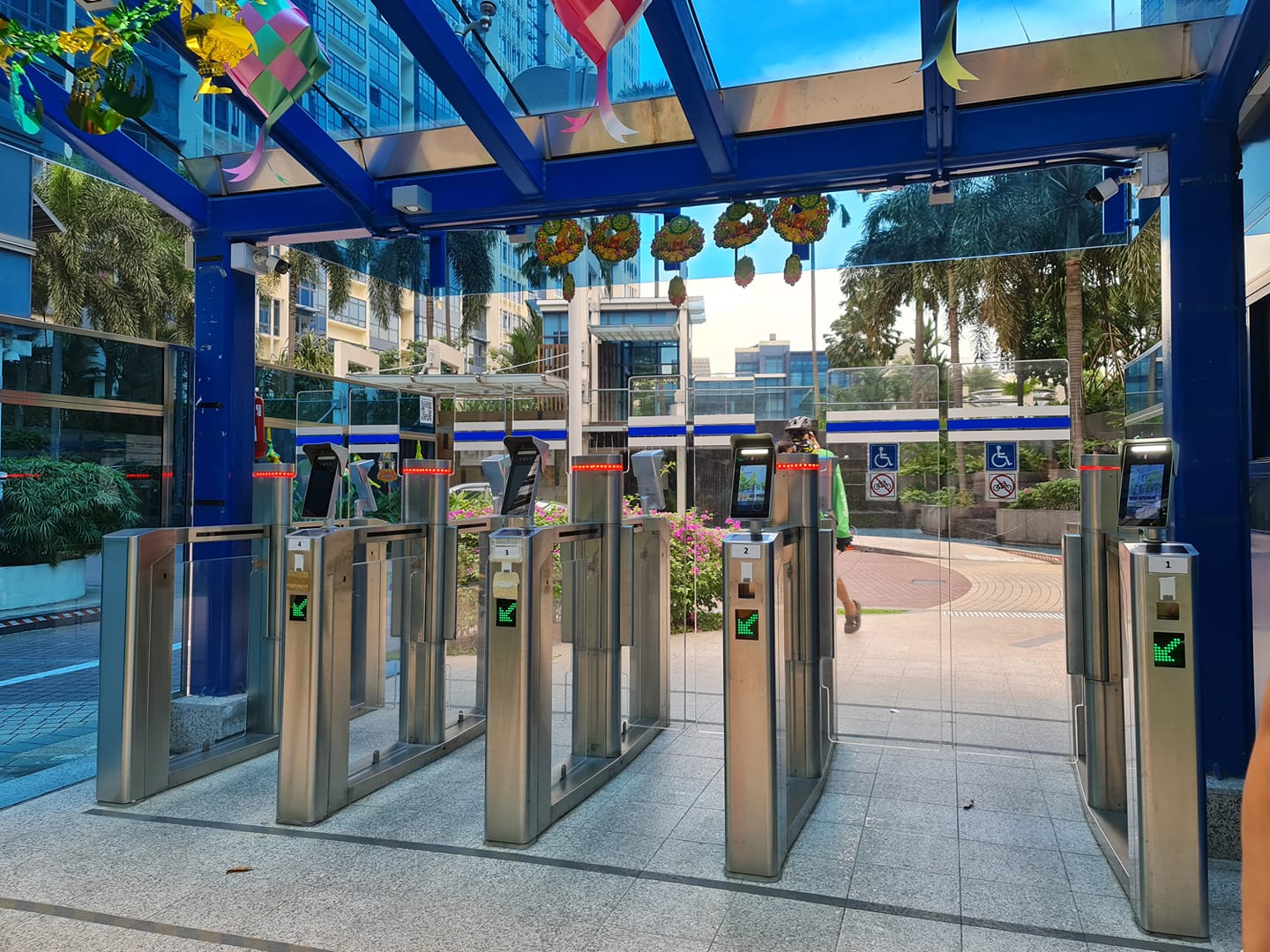
2. No swimming coach during weekends despite the swimming pool being mostly empty
Throughout the pandemic, there have been situations where condo amenities like the gym and swimming pool had to be shut for cautionary reasons. This happened during the circuit breaker last year until swimming pools were reopened in stages over Phases 2 (18 June 2020-27 December 2020) and 3 (28 December 2020-7 May 2021).
Swimming pool use during the circuit breaker was so sought-after at the time, some residents see it as a right since their quarterly maintenance fees weren’t reduced. There was even a Brit who rented a Sentosa Cove bungalow for US$7k a month just to use its pool.
Still, there were restrictions even when pools were reopened.
During Phase 2, for condo pools larger than 50 square metres, swimmers were limited to 1 person per 10 square metres of the usable area or 50 persons at any one time. For pools smaller than 50 square metres, the max was 5. When we entered Phase 3, these restrictions were eased to pools larger than 64 square metres and 1 person per 8 square metres.
When the Multi-Ministry Taskforce announced tightened safe management measures from 8 to 15 May 2021, outdoor activities like swimming were allowed but reduced to 1 person per 10 square metres or a 50-person capacity. Groups had to maintain a social distance of 3 metres while individuals had to stay at least 2 metres apart.
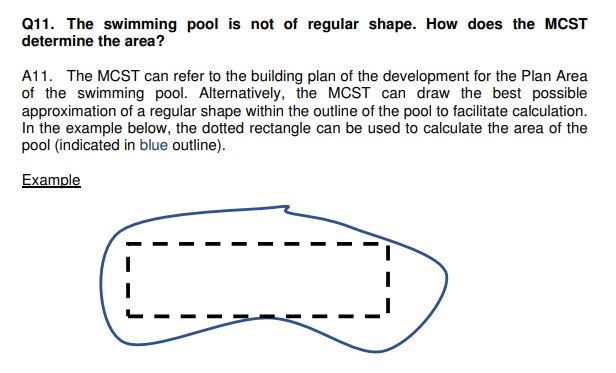
When Singapore entered Phase 2 (Heightened Alert) between 16 May to 13 June 2021, high-intensity “mask-off” physical activities in condos (like swimming) were still allowed. However, the restriction was tightened to a maximum of 2 persons (including the instructor if it’s a swim class), and no multiple groups of 2.
With the calibrated easing of safe management measures from 14 June 2021 under Phase 3 (Heightened Alert), BCA issued its latest advisory where the group size for outdoor mask-off activities like swimming in condos would increase to 5 (but reduced to 2 persons for indoor mask-off activities, including the instructor). As most pools in condos are outdoors, the group size of 5 remains.
In the midst of all these switchings from group sizes of 8 to 5, to 2 and now back to 5 (for condo swimming at least), some residents at Waterfront Waves, Bedok Reservoir, have aired some grievances to 99.co. According to a few residents, swimming lessons from coaches are not allowed during weekends, even when the pool is near empty. Coaching on weekdays is allowed but limited to only MOE NROC-registered coaches.
These restrictions may not be limited to Waterfront Waves but we think they depend on how different MCSTs and managing agents operate.
A check with other condos at the time of writing, such as Waterfront Gold and Archipelago, shows that swim coaches (as long as they have certifications like SSTA, ASCTA or AUSTSWIM, not just NROC-registered coaches) are allowed during weekdays and weekends, as long as safe management measures are followed. Do drop us a comment in our Facebook post or comments below if your condo implements the measures differently.
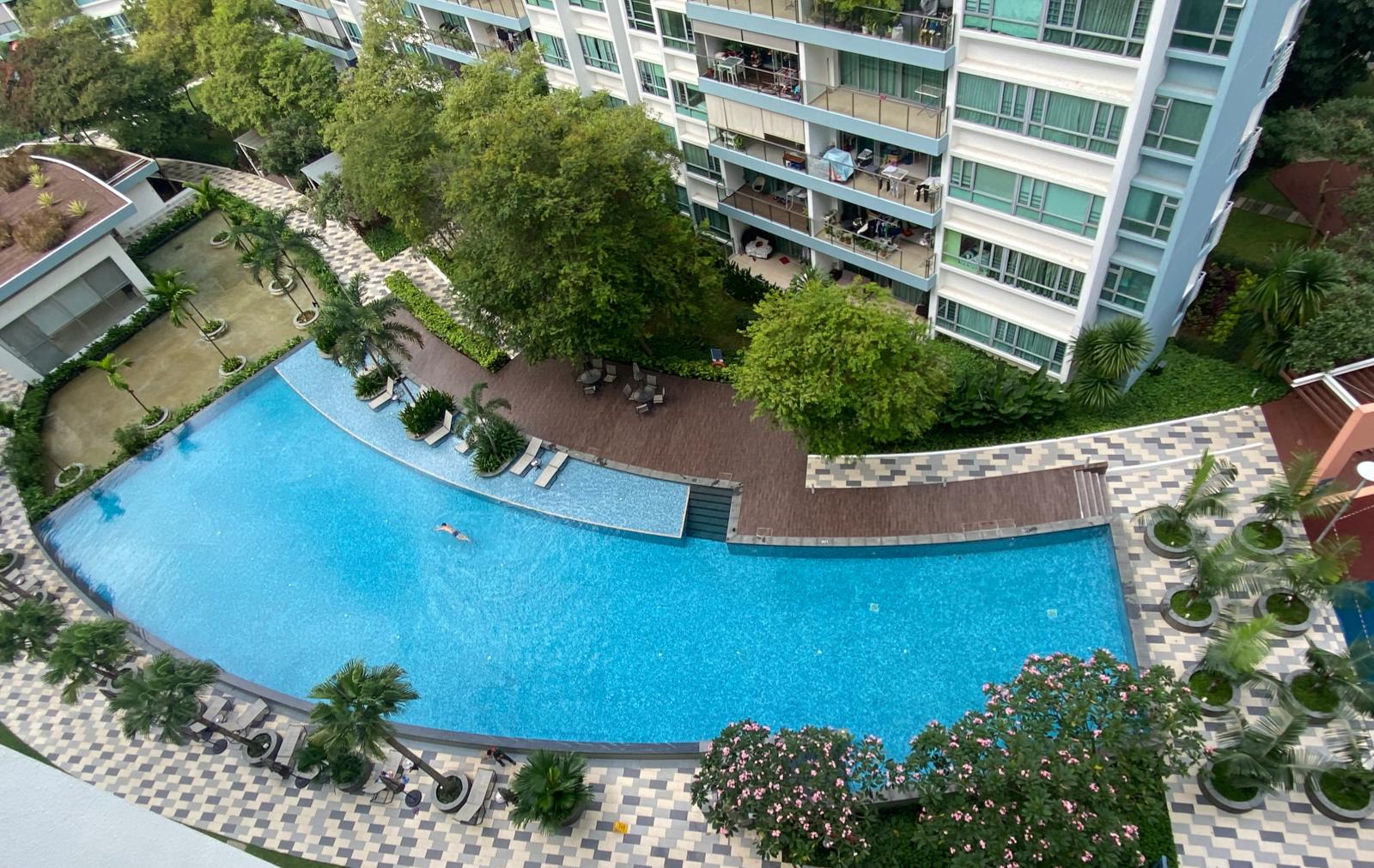
3. Record particulars of residents who break safe measurement rules
An ST forum letter, dated May 26, 2021, asked this: If a condo resident breaks safe measurement rules, do the managing agent and security officers have the authority to ask for identification documents, take down the resident’s particulars and keep photographic and video records?
While the BCA FAQs do not readily address this, a response from the Association of Property and Facility Managers (also dated May 26, 2021) for a different but relevant query does.
It clarified that staff of managing agents and security companies are not accorded the same powers as safe distancing enforcement officers. Hence, they are advised to step up patrolling, remind residents to comply with safe management measures, and if necessary, take down the particulars of residents who are uncooperative, keep records (eg. photos or videos) of such incidents and report to BCA for follow-up.
In other words, the general advice is for the MCST or managing agent to “diligently monitor the situation (eg. residents and guests breaking rules)” and “promptly deal with any contraventions of the requirements”. For recalcitrant cases, the MCSTs/MAs can capture records or evidence, and provide feedback via an online form to BCA.
Some MCSTs, however, do take this record-keeping measure to quite an extreme.
99.co understands that patrol guards at some condos, like Waterfront Waves, now wear body-worn cameras (which many residents were unaware of) to record what residents are doing and whether any of them are breaking safe distancing measures. Bit much? We’ll let you decide.
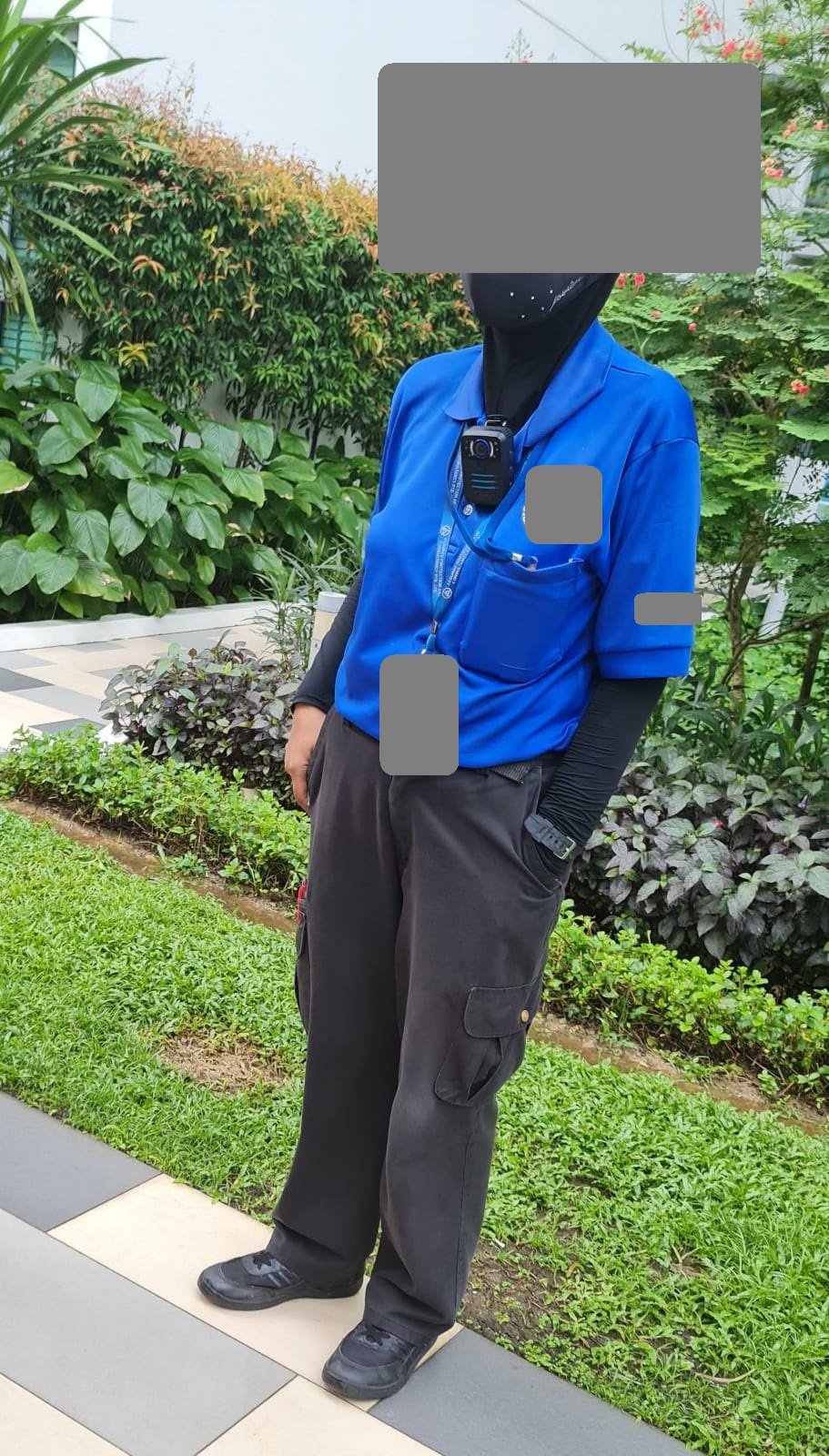
Anyway, be it an invasion of resident privacy or an extra measure of careful security, the evidence can be uploaded via the BCA feedback site in PDF, XLS, DOC, JPG, JPEG, GIF, BMP, MP3, MP4, or MOV formats.
More details in relation to consent and the storage of personal resident records can be found in the PDPA advisory guidelines for MCSTs.
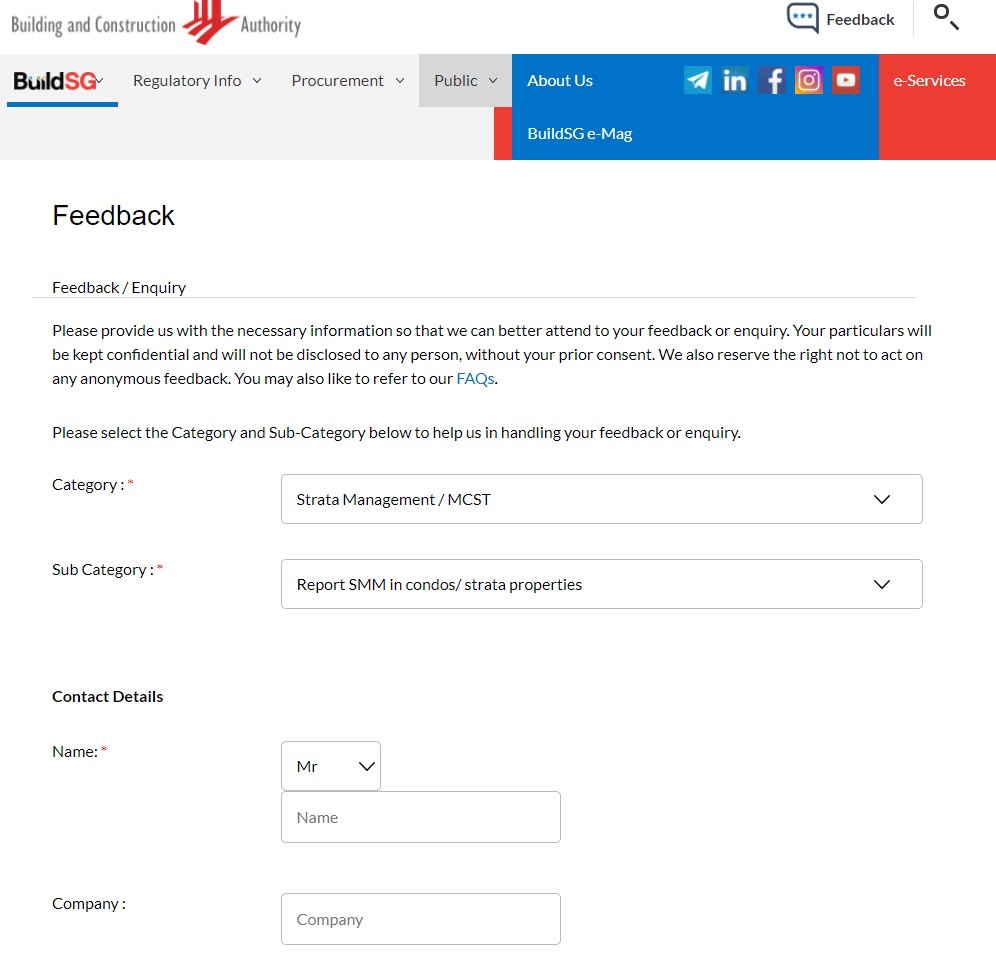
4. Condo service workers remain (and should not be penalised)
Last year, when the circuit breaker hit, condo residents were concerned that condo facility workers, especially the ones looking after the maintenance and cleanliness of common areas within the condo, would be reduced.
As quarterly maintenance fees of condos remain unchanged throughout the pandemic, residents argued that the resources allocated towards facility management should also remain unchanged. This is despite fewer to no resident using the pool, gym or “appreciating the surrounding garden and pond”.
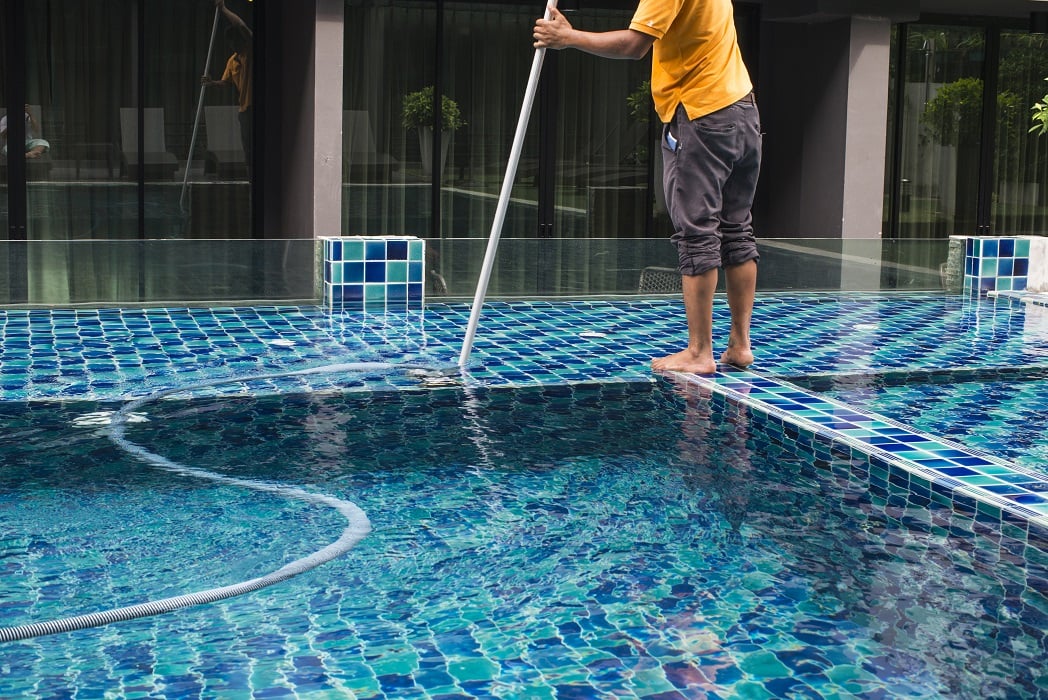
The counter-argument then, was that there would be a tightening of resources, especially for foreign workers who may be harder to deploy due to the COVID infections in the worker dormitories last year or border restrictions this year.
This also meant that the service level provided by these facility service providers to condos may be impacted. It prompted some MCSTs to consider enforcing penalty clauses in their contracts, which would result in non-payment, reductions or termination.
Furthermore, the announcement of the Jobs Support Scheme (JSS) last year added to the counter-argument – the scheme helped the facility management service providers (eg. cleaners, landscape workers, security officers, etc.) to tide through the pandemic. Unfortunately, it also gave some MCSTs the hope that they would be able to negotiate lower fees to pay the managing agents and facility management companies.
That sentiment changed when MOM stepped in.
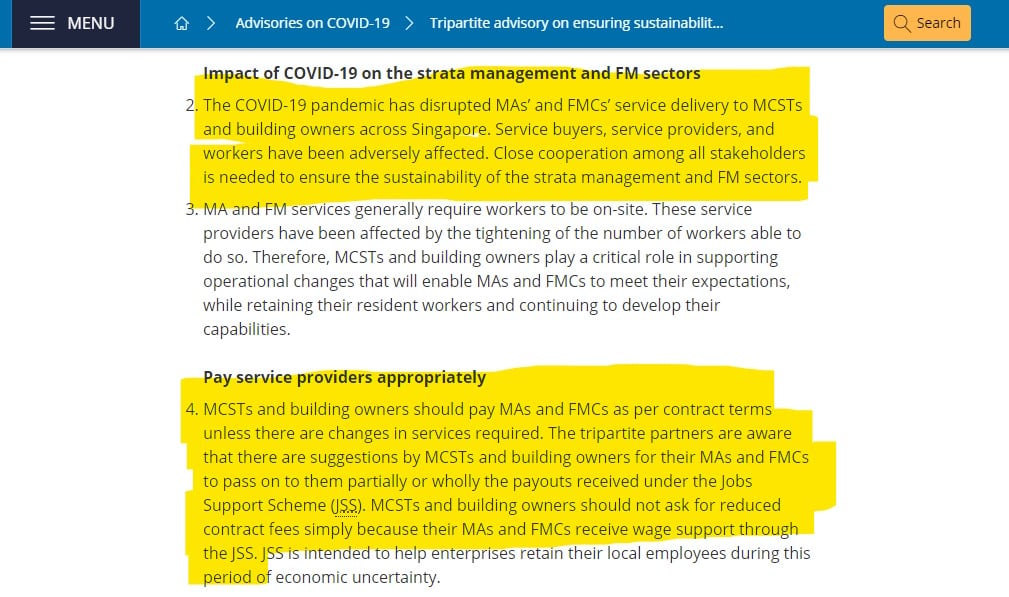
On August 13, 2020, the Ministry of Manpower (MOM), released a statement issuing an advisory to MCSTs, managing agents (MAs) and facility management companies (FMCs) to ensure “sustainability of the strata management and facility management sectors in view of COVID-19.”
MCSTs should continue to pay MAs and FMCs their contract terms (unless there’s a contractual change of service) and they should not ask for reduced contract fees simply because their MAs and FMCs receive wage support through JSS.
MOM, together with several government agencies and associations, including BCA, NTUC, Real Estate Developers’ Association of Singapore and so on, advised MCSTs to exercise restraint from activating penalty clauses on liquidated damages for breaches that are beyond the MAs and FMCs’ control.
Finally, the advisory also addresses MAs and FMCs, advising them to remunerate workers appropriately, especially when there are insufficient headcount and heavier workloads. For workers with reduced workloads (due to health or decreased service provision), MAs and FMCs should comply with salary and leave arrangements, including the government support to retain and continue paying them, even during periods of reduced business activity.
So, if you’re a condo resident, and you see a facility management worker in your compound cleaning, maintaining or working the security guard post, do know that they are still gainfully employed and keeping your facility well-maintained and COVID-free – partly due to the advisory.
5. Tenants to provide COVID-19 test results or denied entry
Now this one’s debatable and comes from across the Causeway.
In January 2021, the Malaysian Senior Minister (Security Cluster) Datuk Seri Ismail Sabri Yaakob, was quoted saying that the management boards or committees of apartments and condominiums (the MCST-equivalent in Malaysia) can demand tenants to undergo COVID-19 swab tests and provide the results, before being let home.
According to the Minister, the reason is “to protect the health of residents, therefore condominium or apartment managements anywhere can make such a rule. So we do not stop them.”
While there is no policy from the National Security Council (NSC) on this rule, the ministry will not stop condominium parties from issuing such an order.
This announcement came after the management of a condominium in Kuala Lumpur denied displaying a banner at its premises ordering foreign residents to undergo COVID-19 testing, or risk being barred from entry.
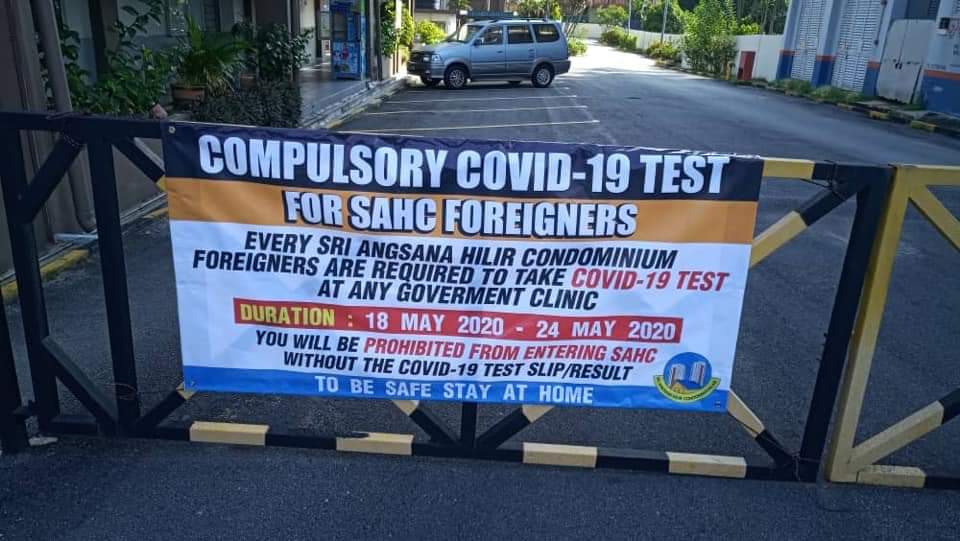
We doubt this particular practice happens in Singapore as it’s discriminatory and in bad taste. However, if you hear something relevant to your condo and have evidence to show, write to us via the link below.
Remember, COVID-19 has no boundaries, whether the resident is a local or a foreigner.
–
What’s your take on your condo’s MCST and managing agent in enforcing safe management measures? We’d love to hear your thoughts, so sound off in the comments below!
If you found this article helpful, 99.co recommends 5 oddballs you’ll encounter at MCST meetings (and how to deal with them) and 4 ugliest ‘condo MCST vs resident’ fights in Singapore history
Looking for a property to buy or rent? Find your dream home on Singapore’s largest property portal 99.co! If you have an interesting property-related story to share with us, drop us a message here – we’ll review it and get back to you.
The post 5 safe distancing measures deployed by the MCST or MA at condos other residents may not know about appeared first on 99.co.

